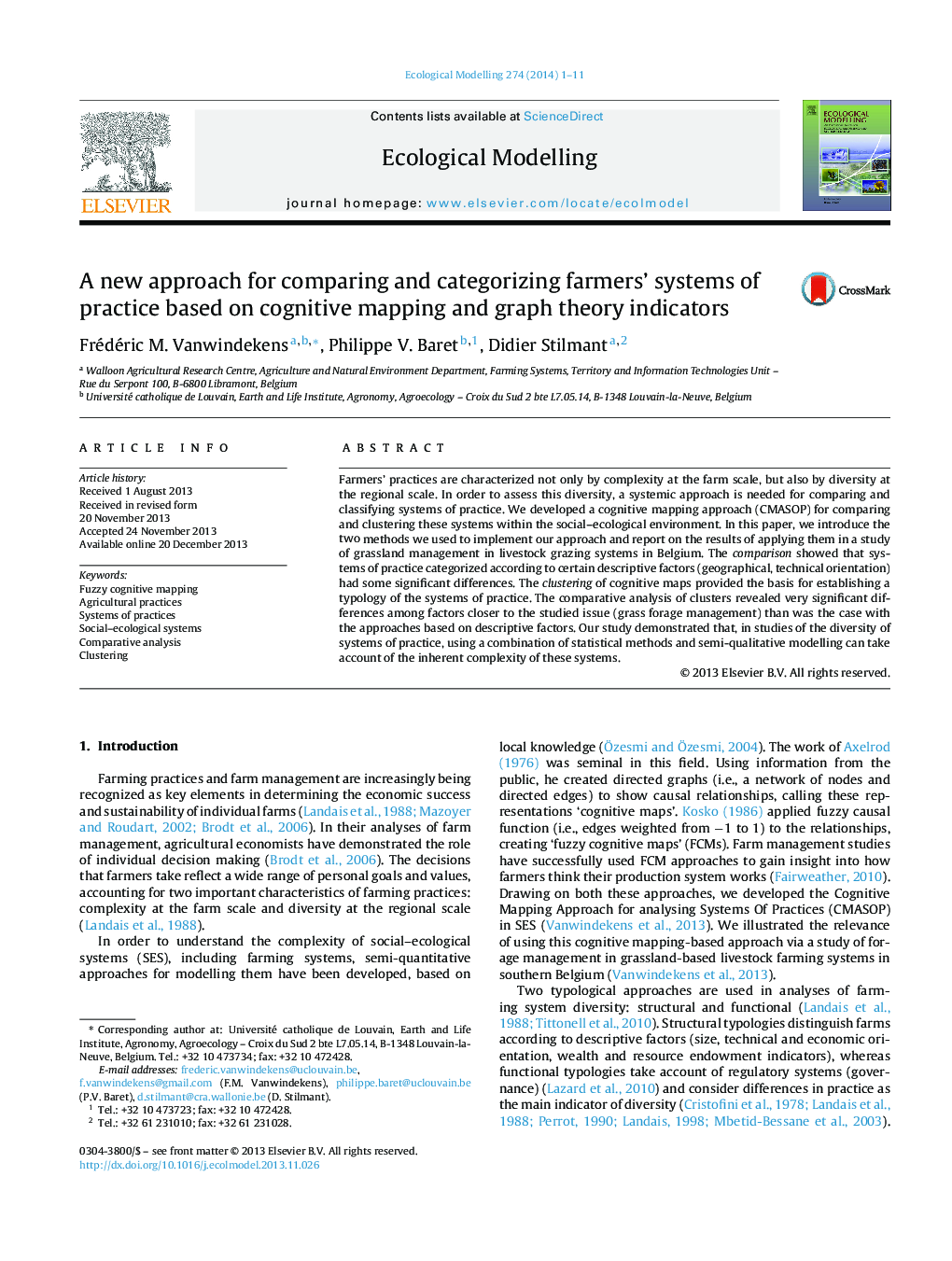| Article ID | Journal | Published Year | Pages | File Type |
|---|---|---|---|---|
| 6296964 | Ecological Modelling | 2014 | 11 Pages |
â¢We sought to assess the diversity of agricultural systems of practice.â¢We used an original combination of statistical and semi-qualitative approaches.â¢The systems of practice differed significantly among the various types of farmers.â¢Using CMASOP and clustering provides a typology of farmers' systems of practice.
Farmers' practices are characterized not only by complexity at the farm scale, but also by diversity at the regional scale. In order to assess this diversity, a systemic approach is needed for comparing and classifying systems of practice. We developed a cognitive mapping approach (CMASOP) for comparing and clustering these systems within the social-ecological environment. In this paper, we introduce the two methods we used to implement our approach and report on the results of applying them in a study of grassland management in livestock grazing systems in Belgium. The comparison showed that systems of practice categorized according to certain descriptive factors (geographical, technical orientation) had some significant differences. The clustering of cognitive maps provided the basis for establishing a typology of the systems of practice. The comparative analysis of clusters revealed very significant differences among factors closer to the studied issue (grass forage management) than was the case with the approaches based on descriptive factors. Our study demonstrated that, in studies of the diversity of systems of practice, using a combination of statistical methods and semi-qualitative modelling can take account of the inherent complexity of these systems.
